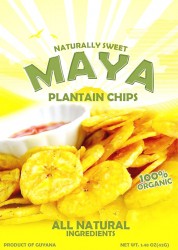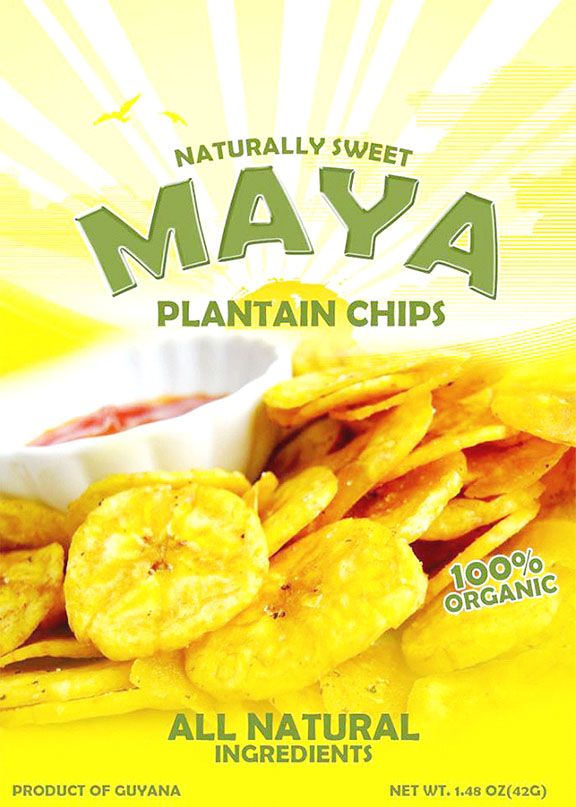After having lived in Miami for approximately eight years, studied computer engineering and landed a job with Gateway Computers in Florida, Navin Hansraj decided that was not the direction in which he wanted his life to go. The 30-year-old Berbician wanted to create a sustainable business enterprise of his own and, he believed, home was the place to do it.
Hansraj comes from a business family. His family has owned and operated a crabmeat plant in Canje for many years, so that there was no shortage of encouragement to follow his entrepreneurial dream.
He returned home in 2012 and set up MMH Enterprise the centrepiece of which was a water bottling plant. A surfeit of such operations in Berbice and elsewhere meant that he was compelled to consider diversification.

His factory at East Canje is staffed by nine women who work six days each week, peeling, salting and frying the chips in large friers. The brand, Maya, is named after his daughter.
With packaging being the Achillies Heel of the local manufacturing sector Hansraj has invested in importing specially designed, pre-labeled bags from the United States. He estimates that quantities of between 60,000 and 100,000 bags cost approximately $25 each, and, he says, having seen the difficulties associated with packaging and labelling which local products face he believes that his is “a more than worthwhile investment.”
Working with a sales team of two persons divided between Berbice and Georgetown, Hansraj has targeted a wide market that includes supermarkets, corner shops, roadside vendors and school canteens.
His high-end customers include Air Services Ltd, Bounty, and Bonny’s and Survival supermarkets in Georgetown as well as J’s, Lavi’s and Price Is Right supermarkets in Berbice.
What particularly pleases Hansraj is the fact that his most successful product up until now has been a local one. His expansion plans include embracing a broader range of local snack foods and in this regard he is contemplating using sweet potato and cassava.
Over the next six months he hopes to roll out an even broader range of products including coconut oil. “Actually, it would be a good thing if we can replace at least some of what we import with locally manufactured commodities. That would be a worthwhile objective for us,” Hansraj says.





